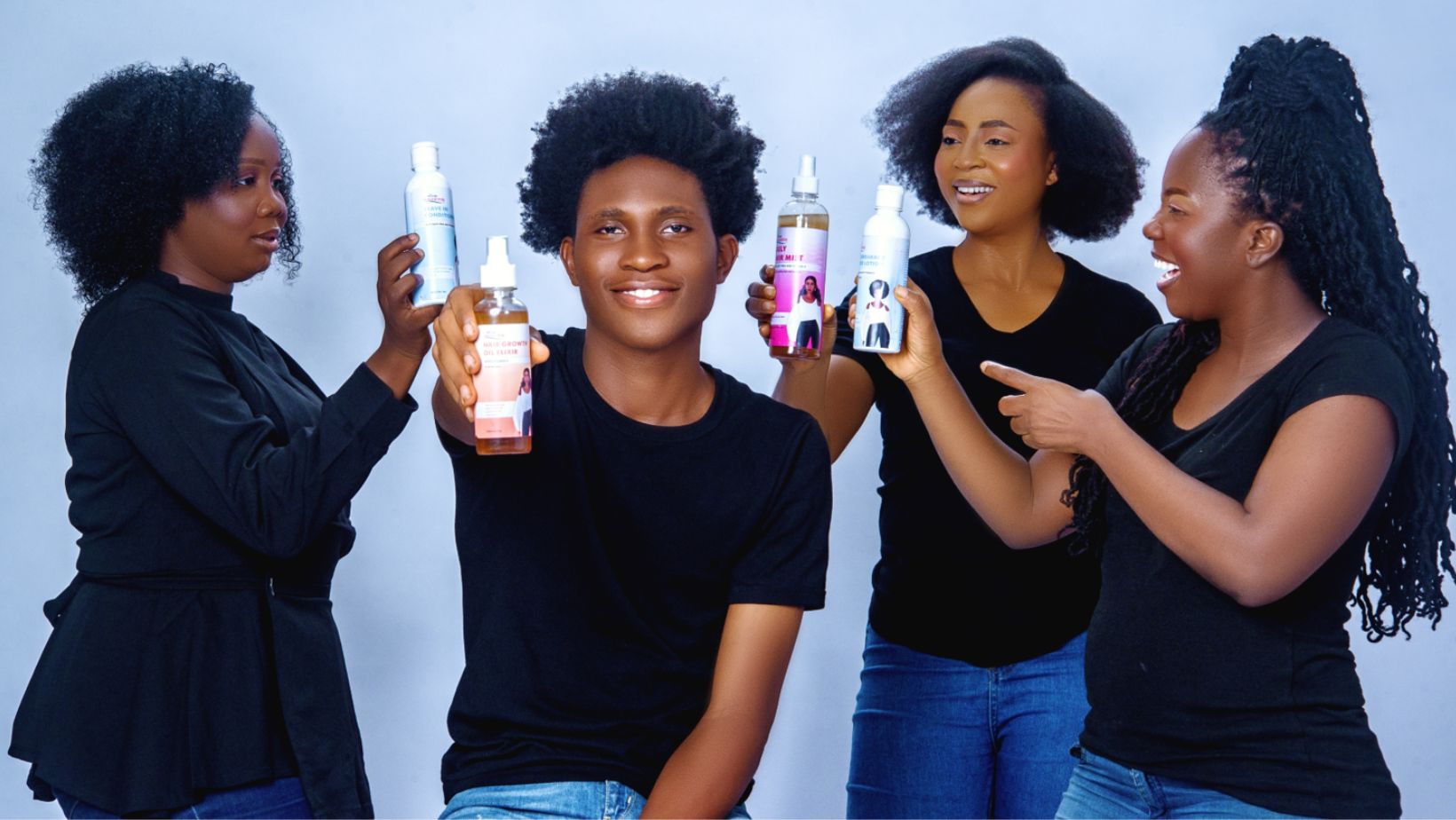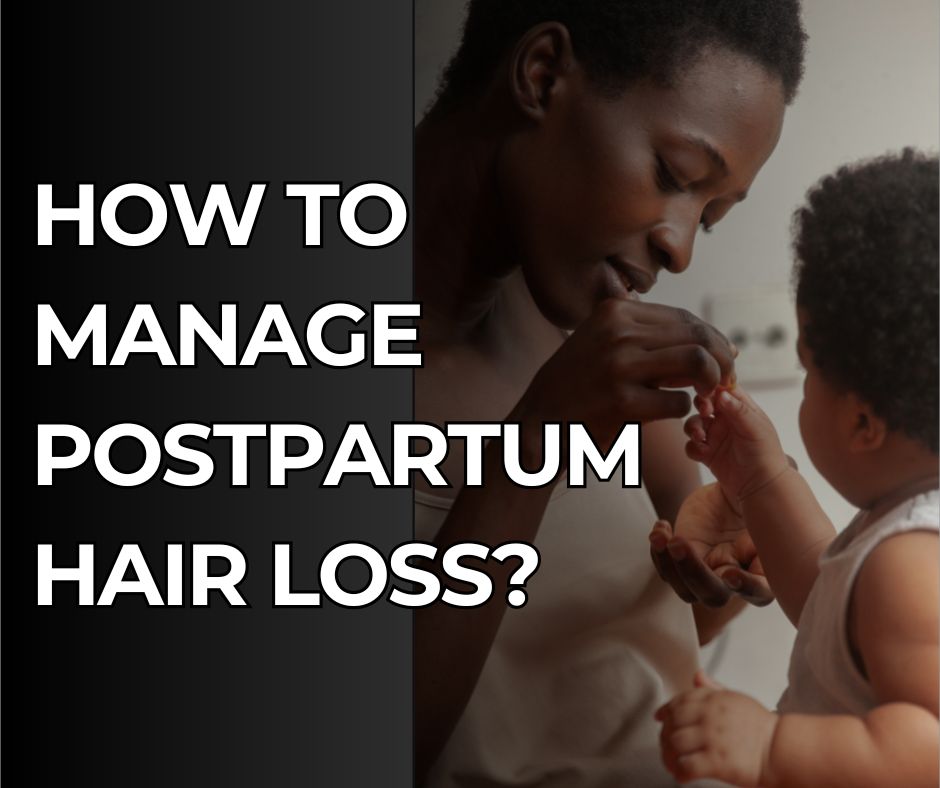Postpartum hair loss, also known as postpartum alopecia, is a common condition that affects many women after giving birth. It occurs due to hormonal changes during pregnancy and after delivery. This is because during pregnancy, higher levels of estrogen prolong the growth phase of hair, resulting in thicker and fuller hair. However, after childbirth, estrogen levels drop significantly, leading to hair entering the resting phase and eventually shedding. This shedding typically peaks around three to four months postpartum.
Postpartum hair loss is a natural process and often resolves on its own. However, if you are having concerns, you can book an appointment at the African Naturalistas Hair Clinic to consult with a trichologist.
Manage Postpartum Hair loss With A Healthy Diet
Consuming a balanced diet rich in vitamins and minerals essential for hair health can help support regrowth. Focus on the following:
- Protein: Hair is primarily made of protein, so ensuring an adequate intake can help support healthy hair growth. Good sources of protein include lean meats, poultry, fish, eggs, dairy products, legumes, nuts, and seeds.
- Iron: Iron deficiency is linked to hair loss, so include iron-rich foods like lean meats, poultry, fish, beans, lentils, tofu, spinach, and fortified cereals in your diet.
- Omega-3 Fatty Acids: Found in fatty fish like salmon, sardines, and mackerel, as well as in flaxseeds, chia seeds, and walnuts, omega-3 fatty acids can help nourish hair follicles and promote hair growth.
- Vitamin E: This vitamin helps improve blood circulation to the scalp, promoting hair growth. Include foods like nuts, seeds, spinach, and avocados in your diet.
- Biotin: Biotin is a B vitamin essential for healthy hair growth. Good food sources of biotin include eggs, nuts, seeds, sweet potatoes, and leafy greens.
- Stay Hydrated: Drink plenty of water to keep your body and scalp hydrated, which can help maintain healthy hair.
- Avoid Crash Diets: Rapid weight loss diets can deprive your body of essential nutrients, leading to hair loss. Aim for gradual, sustainable weight loss if needed.
- Limit Sugary and Processed Foods: These foods can cause inflammation and hormonal imbalances, which may exacerbate hair loss.
If you would like more information or a one-on-one consult with a licensed Trichologist concerning your postpartum hair loss, please click here to book an appointment.
Manage Postpartum Hair Loss With Stress Management
Stress can exacerbate hair loss, so practicing stress-reduction techniques such as mindfulness, meditation, or yoga may help. Managing stress during the postpartum period can be challenging, but there are several effective strategies you can try to help reduce stress and, consequently, manage postpartum hair loss:
- Practice Relaxation Techniques: Incorporate relaxation techniques such as deep breathing exercises, progressive muscle relaxation, mindfulness meditation, or guided imagery into your daily routine. These practices can help calm the mind and reduce stress levels.
- Get Regular Exercise: Engaging in regular physical activity, such as walking, yoga, swimming, or dancing, can help alleviate stress and improve mood by releasing endorphins, the body's natural stress relievers.
- Prioritize Sleep: Aim for quality sleep by establishing a consistent sleep schedule, creating a relaxing bedtime routine, and optimizing your sleep environment. Sufficient sleep is essential for stress management and overall well-being.
- Seek Support: Don't hesitate to reach out to your partner, family members, friends, and a support group for emotional support; sharing your feelings and experiences with others can lighten the emotional burden and provide perspective; or from a licensed professional for practical help. A certified Trichologist at our hair clinic will be able to empower you with knowledge through this journey. Click here to book an appointment.
- Set Realistic Expectations: Adjust your expectations and be kind to yourself as you navigate the demands of new parenthood. Recognize that it's normal to feel overwhelmed at times and that asking for help is a sign of strength, not weakness.
- Practice Self-Care: Make time for activities that nourish your body and soul, whether it's taking a relaxing bath, reading a book, listening to music, or enjoying a hobby. Self-care is essential for replenishing your energy reserves and reducing stress.
- Limit Exposure to Stressors: Identify sources of stress in your life and take steps to minimize or avoid them when possible. This might involve setting boundaries, delegating tasks, or saying no to additional commitments.
- Practice Time Management: Break tasks down into manageable steps, prioritize essential tasks, and delegate responsibilities to lighten your workload. Effective time management can help reduce feelings of overwhelm and stress.
- Consider Professional Help: If you're struggling to cope with stress or experiencing symptoms of anxiety or depression, consider seeking support from a mental health professional. Therapy or counseling can provide tools and strategies to manage stress effectively.
- Stay Connected with Your Baby: Spending quality time with your baby, such as cuddling, playing, and bonding, can help reduce stress levels and promote feelings of joy and connection.
All of these and more can be discussed at our Hair Clinic with a certified Trichologist. To book an appointment, please click here.
Manage Postpartum Hair Loss With Gentle Hair Care.
To manage postpartum hair loss gently, consider incorporating these hair care tips into your routine:
- Be Gentle During Washing: Use a gentle, sulfate-free shampoo formulated for sensitive or thinning hair. Avoid harsh scrubbing or rubbing when washing your hair, as this can exacerbate hair breakage.
- Use Lukewarm Water: Wash your hair with lukewarm water instead of hot water, as hot water can strip away natural oils from the scalp, leading to dryness and potential hair damage.
- Pat Dry, Don't Rub: After washing your hair, pat it dry with a soft towel instead of rubbing vigorously. Rubbing can cause friction and damage fragile hair strands.
- Detangle with Care: Use a wide-tooth comb or a gentle brush to detangle your hair, starting from the ends and working your way up to the roots. Avoid pulling or tugging on knots, as this can lead to breakage.
- Avoid Tight Hairstyles: Steer clear of tight hairstyles like ponytails, braids, or buns that put excessive tension on the hair follicles. Opt for looser styles or leave your hair down to minimize stress on the scalp.
- Limit Heat Styling: Minimize the use of heat styling tools such as blow dryers, flat irons, and curling irons, as high heat can damage hair and contribute to breakage. If you must use heat, apply a heat protectant spray beforehand and use the lowest heat setting possible.
- Choose Soft Hair Accessories: Use soft, fabric-covered hair ties and accessories instead of rubber bands or tight clips, which can pull on the hair and cause breakage.
- Massage Your Scalp: Gently massage your scalp with your fingertips to stimulate blood flow and promote hair growth. This can also help distribute natural oils and nourish the hair follicles. Consider our High Frequency Treatment to increase nutrient supply to the hair follicles.
- Protect Your Hair While Sleeping: Sleep on a silk or satin pillowcase to reduce friction and minimize hair tangling while you sleep. You can also loosely braid or tie your hair up to prevent it from rubbing against the pillow.
- Nourish Your Scalp: Consider using a nourishing scalp treatment or hair oil to moisturize and condition your scalp, promoting a healthy environment for hair growth.
By following these gentle hair care tips, you can help manage postpartum hair loss while minimizing damage and promoting overall hair health.
Patience is your best tool to Manage postpartum Hair Loss
Remember that postpartum hair loss is temporary, and your hair will likely return to its pre-pregnancy state within six to twelve months. If you're concerned about excessive hair loss or if it persists beyond a year postpartum, it's advisable to consult with a trichologist to rule out any underlying medical conditions and discuss further treatment options. Click here to book a consultation today.


